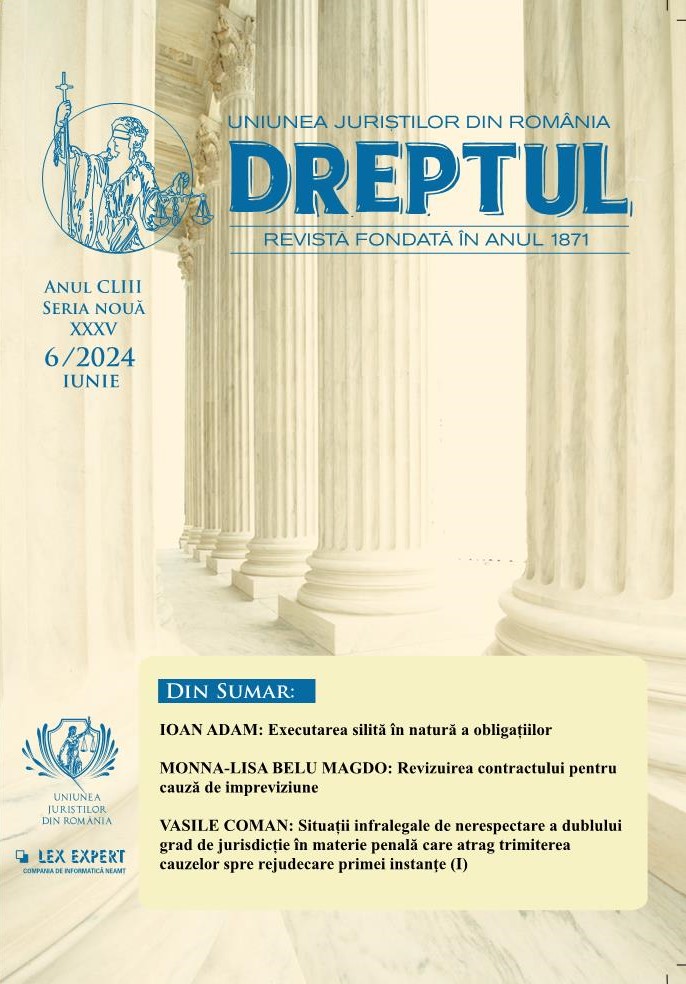Situații infralegale de nerespectare a dublului grad de jurisdicție în materie penală care atrag trimiterea cauzelor spre rejudecare primei instanțe (I)
Infralegal situations of non-compliance with the double degree of jurisdiction in criminal matters which attract the referral of the cases for retrial to the first instance (I)
Author(s): Vasile ComanSubject(s): Criminal Law
Published by: Uniunea Juriștilor din România
Keywords: double degree of jurisdiction; referral for retrial; lack of motivation; court decision; jurisprudence;
Summary/Abstract: Carrying out a fair criminal trial implies, in the new criminal procedural architecture in Romania, the examination of the case twice under all its aspects („two degrees of jurisdiction”) by two courts, one effectively and for the first time, and second with the vocation to verify the conclusions of the first court as the hierarchically superior control court, in the case of its notification by the trial participants.However, it is possible that this objective is sometimes not achieved and the ordinary court of judicial review (appeal or appeal) finds that it is necessary to resume the trial at the first instance court, because different essential aspects of the file have not been analyzed, meaning which the law [mainly the general provisions of Article 421 (1) point 2 of the Criminal Procedure Code] regulates several express hypotheses in which the court can order in this sense. However, the examination of the jurisprudence of the last years highlights numerous cases in which the appeal courts have ordered the cases to be retried for non-compliance with the generic principle of the double degree of jurisdiction in criminal matters, other than those already legislated, among which a high frequency is found in the lack of reasons for the decisions, the lack of an effective judicial investigation, the non-compliance with some fundamental principles of the criminal process, the wrong admission of the request for judgment in the simplified procedure or other requests that have the effect of not judging the case on the merits, totally or substantially, retaining a legal classification different from the one deduced of the judgment or the omission of discussing the requests with this object, the omission of some procedures adjacent to the case or in an incomplete procedural framework from the point of view of the participants, non-compliance with the provisions of a previous decision by which the appeal court orders the retrial of the case, the existence of irreconcilable contradictions in the structure of the court decision contested or its pronouncement without including the factual and legal reasons or in the absence of the case file and others, which will be analyzed in the two parts of this study.The condition of the predictable nature of the procedural law and its compliance with the relevant European provisions – mainly Article 6 of the European Convention on Human Rights and Article 2 of Protocol No 7 of the same Convention – the lege ferenda law calls for the updating of the internal procedural provisions by inserting at the text level and the most frequent cases of retrial for non-compliance with the double degree of jurisdiction arising jurisprudentially, and mentioned by way of example, as was also done on the occasion of the adoption of the Government Emergency Ordinance No 18/2016.
Journal: Revista „Dreptul”
- Issue Year: 2024
- Issue No: 06
- Page Range: 124-149
- Page Count: 26
- Language: Romanian
- Content File-PDF

